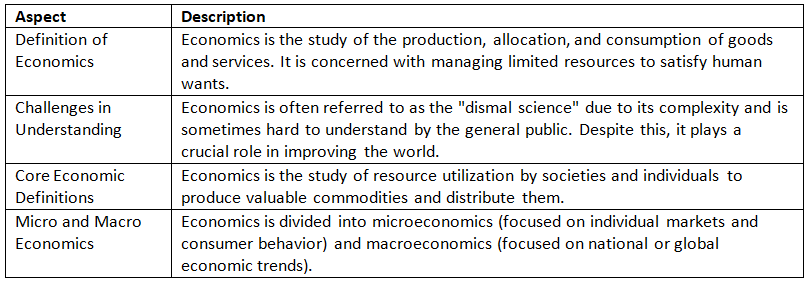Cheat Sheet: Introduction to Economics | Indian Economy for UPSC CSE PDF Download
Introduction
This document provides a detailed chronology on economics, covering essential aspects such as the definition of economics, the division between micro and macroeconomics, the evolution of economic systems, national income, and different economic models. The goal is to provide a comprehensive understanding of these key concepts in a straightforward and easy-to-read format. It outlines important economic principles and theories, and compares different economic systems, growth stages, and distribution methods, which are crucial for understanding economic structures and functions in a global context.

Economics Overview

Micro and Macro Economics

Types of Economies

Economic Systems

Stages of Economic Growth


National Income and GDP

Economic Growth Measurement

Distribution Systems

Economic Reforms and Models

Conclusion
This document provides an in-depth look at the key economic concepts, systems, and measures that shape how economies function. Understanding the differences between market, non-market, and mixed economies, along with the calculation of national income through GDP, GNP, NDP, and NNP, is crucial for comprehending the complexities of economic systems. Additionally, the discussion of various economic models like the Washington Consensus, Beijing Consensus, and Santiago Consensus highlights how different countries have approached economic growth. The mixed economy model, which blends both private and state control, is becoming more relevant in addressing global and national economic challenges. This knowledge is essential for understanding how economies develop, adapt, and function in a constantly changing world.
|
108 videos|425 docs|128 tests
|

















